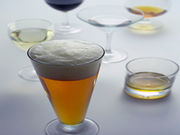In Maryland, 24 percent reduction in gonorrhea rates after alcohol-specific sales tax increase
MONDAY, Dec. 21, 2015 (HealthDay News) — Introduction of an increase in alcohol beverage sales tax is associated with a reduction in gonorrhea rates, according to research published online Dec. 9 in the American Journal of Preventive Medicine.
Stephanie A.S. Staras, Ph.D., from the University of Florida in Gainesville, and colleagues used an interrupted time series design, including multiple cross-state comparisons, to examine the impact of the 2011 alcohol tax increase in Maryland. The effects were assessed on chlamydia and gonorrhea cases reported to the U.S. National Notifiable Disease Surveillance System for 2003 through 2012 (120 repeated monthly observations).
The researchers observed a 24 percent decrease in gonorrhea rates after the alcohol-specific sales tax increase, resulting in 1,600 fewer gonorrhea cases annually across the state. The tax increase had a substantial effect on gonorrhea rates (Cohen’s d, −1.25 to −1.42). No evidence was found for an effect on chlamydia, nor were there differential effects across age, race/ethnicity, or gender subgroups.
“Results strengthen the evidence from prior studies of alcohol taxes influencing gonorrhea rates and extend health prevention effects from alcohol excise to sales taxes,” the authors write. “Alcohol tax increases may be an efficient strategy for reducing sexually transmitted infections.”
Copyright © 2015 HealthDay. All rights reserved.








